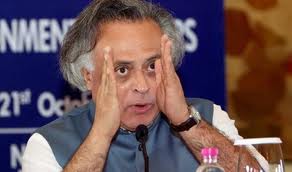
New Delhi, June 9: Amid the controversy over Rs 35 lakh expenditure on Planning Commission's toilets, Union Minister Jairam Ramesh today quipped that he himself spends '18 hours of a day on toilets alone'.
"I believe the biggest issues in front of us are malnutrition and toilets, these are the two faces of one coin... I have MNREGA, PMGSY, drinking water etc under me but I spend maximum time on toilet only," said Ramesh, who holds the portfolios of Rural Development and Drinking Water and Sanitation, in what apparently was his take on the toilet controversy for which the plan panel has drawn flak.
"Believe me that out of the 24 hours, I spent 18 hours on toilet (issue) itself," he said at a function here to release a book on manual scavenging written by journalist Bhasha Singh.
He insisted that the government was "not at all insensitive" and it is committed and duty bound to work on the issue.
He lamented that even after six decades after independence, around 7.5 lakh families are involved in manual scavenging as per the 2011 census.
"After the figures we get from various states, I was under the impression that manual scavenging in the states have been abolished.
"But when I went through the detailed report of Census, the figures are surprising and astonishing. Even today many people don't realise and don't believe that this Census is correct," he said.
The book in Hindi titled "Adrishya Bharat" is on manual scavenging.
He said Railways is "another big headache for us."
The issue of manual scavenging is related with daily railway traffic and "we have to tackle this also.
Though my responsibility is for rural area, we have to take care of urban areas as well. Facilities like Sulabh should be available in large numbers."







Comments
Add new comment